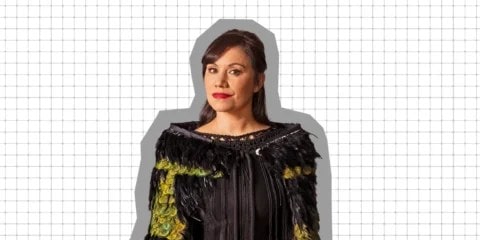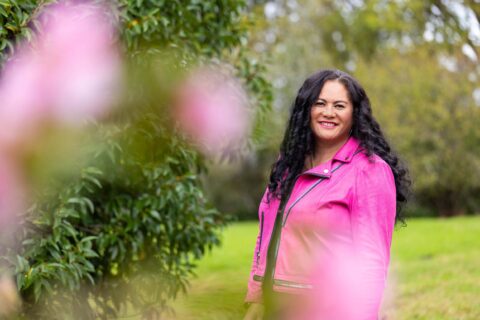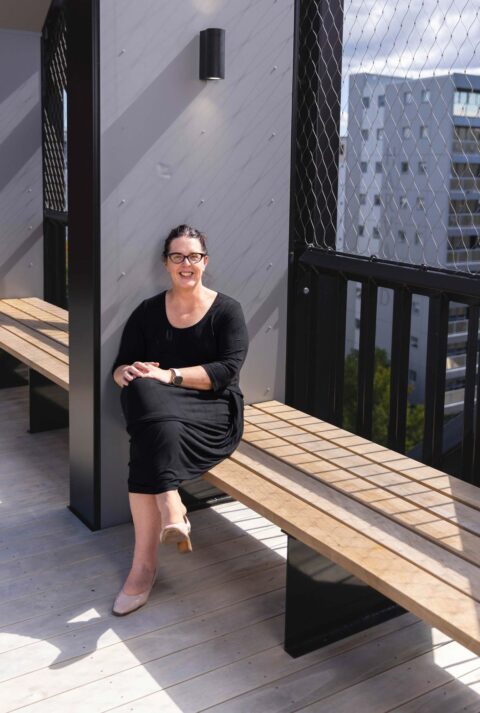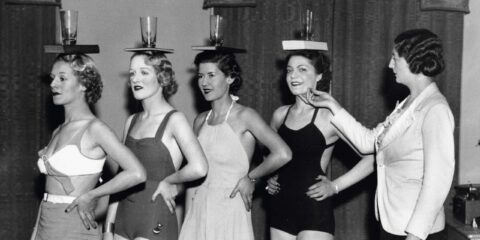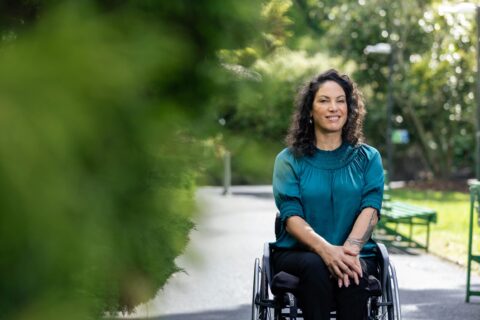Former politician and sportswoman Louisa Wall fell asleep listening to a podcast from LQBTQ+ trailblazer Georgina Beyer when Georgina died earlier this week.
Georgina, who became the world’s first trans mayor and then the first trans to be elected to Parliament, was not only Louisa’s fellow colleague in the Labour caucus but she was also a role model that inspired Louisa’s own fight for equality. When Louisa found out that her friend and mentor had died, she wanted to hear Georgina’s voice as she slept.
“She has pearls of wisdom that will continue to guide all of us. I wanted to be close to her and I did that by listening to her voice. I’m going to miss her spirit and her ability to be so articulate and passionate,” Louisa says, holding back tears.
Georgina’s death has been felt all around the world. Tributes and an outpouring of sadness have been expressed since the 65-year-old passed away at a Wellington hospice yesterday. For years she had battled kidney disease and survived a kidney transplant in 2017. The Carterton District Council, where Georgina spent two terms as its mayor from 1995, will be flying its flag at half-mast to honour her contribution.
Related article: The Colourful Life of Louise Wall
“Georgie was surrounded by her nearest and dearest 24/7 over the past week, she accepted what was happening, was cracking jokes and had a twinkle in her eye, right until the final moment,” her friend Scotty Kennedy wrote on Facebook.
“Farewell Georgie, your love, compassion and all that you have done for the Rainbow and many other communities will live on forever.”
Georgina, whose iwi are Te Āti Awa, Ngāti Mutunga, Ngāti Raukawa, and Ngāti Porou was born in Wellington but spent her early years being raised by her mother’s family, the Tamati whānau, in Taranaki. As a youngster, she returned to Wellington with her mother and stepfather and spent most of her schooling years in the capital city.
Before she became a mayor and forged a career in national politics, Georgina had a love for performance and wanted to pursue a career in acting. But she struggled to find consistent work because of the lack of opportunities for trans women at the time. She found herself working as a nightclub performer and a sex worker in Wellington.
She did find the odd acting opportunity. Her performance in the short 1986 TV drama Jewel’s Darl, earned her a best actress nomination at the New Zealand TV Awards, becoming the first trans actor in the world to be a finalist in a best actress film and TV category.
Georgina eventually moved to Carterton and became a radio broadcaster and a drama teacher for a community course. She was known to fight for and become a voice for the oppressed in the community, which led to her entering politics through local government. In 1995, she was elected mayor of Carterton making her the world’s first openly transgender mayor. Then in the 1999 general election, she won the Wairarapa electorate for Labour – becoming the world’s first openly transgender Member of Parliament in one of the country’s most conservative electorates. Her opponent during that election was National representative and controversial broadcaster, Paul Henry.
Beyer was loved by her constituents and her wit and charm gave her an intimate and personal connection to the public. Her maiden speech is one of the most inspired speeches heard in Parliament and her tireless work played a pivotal role in decriminalising prostitution.
“From a political perspective, Georgina was really clear and transparent about what she was wanting to achieve and why. She fought the good fight, and in a manner that was a direct challenge to those who had the power.” Louisa explains.
Today, we acknowledge the passing of Georgina Beyer – the worlds first openly transgender MP. Georgina has left lasting impression on Parliament, and we extend our condolences to her loved ones.
— NZ Parliament (@NZParliament) March 6, 2023
Watch Georgina's Rainbow Voices interview from 2019: https://t.co/sWBLubpvfm pic.twitter.com/7Ov8uaCYY4
“I know some people thought she was brash, that she was uncontrollable. Everything she did was driven from a place of aroha and a sense of responsibility for using her voice to better the life outcomes for others who were less fortunate.”
“I remember her being so glamorous, flamboyant and always well-presented. For me, and for her, that projection matters in the world. It’s a public reflection of how you see yourself. There’s a lot to be admired for people who have the ability to reflect that inner pride, especially in hostile environments.”
Louisa says she was inspired by Georgina Beyers’s conviction and work ethic, especially for someone who had experienced years of abuse and oppression, and who had literally risen from the streets into the halls of parliament.
“When you have a clear purpose, and when you’ve had to stand up for yourself and pick yourself up from so many hideous life experiences, and you still have the fortitude to fight for others, then that’s remarkable.”
“I’m grateful to have the opportunity to work with her. We will mourn Georgina Beyer for a very long time. I don’t think we fully appreciated the significance of her work and how much of an anchor she has been for the emancipation of the LGBTQ+ people in Aotearoa, New Zealand.”
Louisa’s last text to Georgina was last week when Louisa was in Sydney to attend the Pride Festival. The event paid tribute to Georgina Beyer by projecting her image on a big screen and Louisa wanted to tell her friend how loved she was.
“You’re a bloody superstar,” read Louisa’s text.
Georgina Beyer was that indeed – and more.


